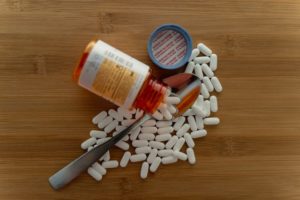The headline of this post is a mixture of fact and wishful thinking on my part.
Sure, many parents do question advice from so-called experts who tell them they should allow their daughter or son to suffer serious harm in order to allow them to hit rock bottom and stop using drugs. But what surprises me is how many parents do not question this advice, even when it should be clear that this tactic isn’t working.
Plenty of harm is piling up, some of it irreversible, but didn’t the experts say something about all this harm leading to recovery?
I have spent quite a bit of time observing and reflecting on this phenomenon. What could make a parent accept advice from an expert to allow their child to suffer serious harm? What could make them persist in this course of action or inaction, even while horrible things are happening to their child right before their eyes? What could make them persist even when it should be clear that the whole hitting bottom thing isn’t working?
Stanley Milgram might offer us a clue. He conducted a series of now famous experiments at Yale in the 1960s. Paid volunteers agreed to participate in a “memory experiment.” A Yale scientist in a lab coat told the volunteers to administer electric shocks to a study subject each time the subject gave a wrong answer. With each wrong answer, the voltage of the shock was increased.
At 75 volts the subject grunts. At 120 volts the subject shouts in pain. At 150 volts the subject tries to quit. The Yale scientist in the lab coat tells wavering volunteers to keep going, and assures one skeptical volunteer that the shocks will cause “no permanent tissue damage.”
At 200 volts the subject screams in agony, and at 300 volts stops responding to questions and mumbles something about a heart condition. The man in the lab coat tells the volunteer to treat non-responses as incorrect answers and administer a higher level of pain. At 450 volts, the scientist finally says the experiment is over.
The real topic of the study wasn’t memory, but response to authority. The study subject who screamed in pain was an actor. But the true subjects of the study, the volunteers, were average people just like you and me.
The study found that most of the volunteers would have stopped administering shocks early in the experiment. This wasn’t easy for them. Many showed signs of extreme stress including sweating, trembling, groaning and digging their fingernails into their flesh. Quite a few experienced uncontrollable laughing fits, and a few actually had seizures. But with the expert authority figure of a scientist in a lab coat encouraging them to continue, about two out of three of them administered every shock right up to the 450 volts, no matter how much the subject begged for them to stop.
This study became very famous in the field of psychology. The findings have been confirmed and found to be true for people across gender, age, occupation and level of education. These volunteers were not a bunch of sadists. They were regular people like you and me.
I can’t help but wonder whether this study might shed some light on why so many parents are willing to follow bad advice and allow their addicted children to suffer serious preventable harm. Especially when better alternatives could both prevent the harm and be more effective in helping their family member transition from active drug use to recovery.
Each of the harms is like one of those electric shocks. And like the electric shocks, the harm tends to become more severe over time.
In trouble at school, lost a job, kicked out of the house, beat up by a dealer, arrested, incarcerated, infected with hepatitis C and HIV, traded sex for drugs or money, raped, attempted suicide, suffers a fatal drug overdose.
450 volts of electric shock would be getting off cheap. And these aren’t strangers. Shouldn’t we be shocked when parents intentionally stand by while preventable harm happens to their own children because they believe it when they are told that they must allow this harm to happen?
I’ve sat in groups of parents and watched them nod solemnly in assent as a so-called expert told them that they were enabling their child’s addiction if they so much as bought them a loaf of bread.
Especially in times of crisis, when we aren’t sure what to do, we look for someone who may tell us what to do. Generally speaking, there isn’t anything wrong with consulting an expert and acting on the expert’s advice. Our ability to follow leadership in times of crisis is a social and psychological adaptation that has served humankind well. But we are all wise to retain our independent judgment and common sense.
Most parents are heroic in their love for their addicted children. They deserve great respect and compassion. Sometimes parents don’t know how to prevent harm to their children. Sometimes parents lack the strength or capacity to continue to try to prevent harm to their children. Some parents feel powerless to effect the outcome of their child’s addiction, and so surrender any hope that they might be able to make a difference. Sometimes parents feel that they have to let go out of emotional self-preservation.
I support parents setting appropriate boundaries to keep themselves and other family members safe and sane. I also support parents who want to take action to keep their child safe, and who want to take action to help them transition from active addiction to recovery.
Voices in the “tough love, anything you do to help is enabling addiction, let them hit rock bottom” crowd tend to shout the loudest. But parents should know that the scientific research is on the side of the experts who say that early intervention is better than waiting for someone to hit bottom, and that enabling recovery requires action.
Don’t believe the scientific researchers just because they wear lab coats. But don’t believe those in the tough love crowd who tell you that you have no choice but to stand idly by and watch the catastrophe unfold, just because they seem to speak with authority.

